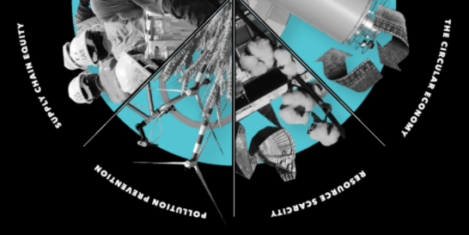To provide the best experiences, we use technologies like cookies to store and/or access device information. Consenting to these technologies will allow us to process data such as browsing behaviour or unique IDs on this site. Not consenting or withdrawing consent, may adversely affect certain features and functions.
The technical storage or access is strictly necessary for the legitimate purpose of enabling the use of a specific service explicitly requested by the subscriber or user, or for the sole purpose of carrying out the transmission of a communication over an electronic communications network.
The technical storage or access is necessary for the legitimate purpose of storing preferences that are not requested by the subscriber or user.
The technical storage or access that is used exclusively for statistical purposes.
The technical storage or access that is used exclusively for anonymous statistical purposes. Without a subpoena, voluntary compliance on the part of your Internet Service Provider, or additional records from a third party, information stored or retrieved for this purpose alone cannot usually be used to identify you.
The technical storage or access is required to create user profiles to send advertising, or to track the user on a website or across several websites for similar marketing purposes.
 The World Economic Forum published the “Human-Centred AI for Human Resources: A Toolkit for Human Resources Professionals” to scale the responsible use of artificial intelligence in Human Resources (HR). The toolkit includes a guide covering key topics and steps in the responsible use of AI-based HR tools, and two checklists – one focused on strategic planning and the other on the adoption of a specific tool. (more…)
The World Economic Forum published the “Human-Centred AI for Human Resources: A Toolkit for Human Resources Professionals” to scale the responsible use of artificial intelligence in Human Resources (HR). The toolkit includes a guide covering key topics and steps in the responsible use of AI-based HR tools, and two checklists – one focused on strategic planning and the other on the adoption of a specific tool. (more…)






 A new report from
A new report from 
 Workers are much more likely to challenge unethical behaviour in their organisation if their manager is seen as an ethical leader, according to new research from
Workers are much more likely to challenge unethical behaviour in their organisation if their manager is seen as an ethical leader, according to new research from 


 The World Economic Forum has launched a new report which sets out to define how organisational leaders can influence their companies and encourage the responsible use of technology and build ethical capacity.
The World Economic Forum has launched a new report which sets out to define how organisational leaders can influence their companies and encourage the responsible use of technology and build ethical capacity. 
 The number of companies monitoring their employees is growing. According to a Gartner survey, more than 22 percent of employees use employee movement data, while 17 percent of them are monitoring computer usage. With companies choosing to monitor employees, privacy laws are also catching up, and thus there is a need for explaining employee monitoring to prospective hires. Employee monitoring is defined as the use of monitoring devices and methods by companies to learn about their employees’
The number of companies monitoring their employees is growing. According to a Gartner survey, more than 22 percent of employees use employee movement data, while 17 percent of them are monitoring computer usage. With companies choosing to monitor employees, privacy laws are also catching up, and thus there is a need for explaining employee monitoring to prospective hires. Employee monitoring is defined as the use of monitoring devices and methods by companies to learn about their employees’ 
 Earlier this month, in a sudden and unexpected turn of events, the prime minister’s chief adviser, Dominic Cummings, walked out of 10 Downing Street for the last time, having resigned/been asked to leave, depending on whose account of the episode you believe. However, the affair unfolded in reality, it seems clear that the departure of Cummings and Director of Communications, Lee Cain, was precipitated by workplace conflict and a series of internal disagreements, which had pushed their relationships with certain colleagues to breaking point.
Earlier this month, in a sudden and unexpected turn of events, the prime minister’s chief adviser, Dominic Cummings, walked out of 10 Downing Street for the last time, having resigned/been asked to leave, depending on whose account of the episode you believe. However, the affair unfolded in reality, it seems clear that the departure of Cummings and Director of Communications, Lee Cain, was precipitated by workplace conflict and a series of internal disagreements, which had pushed their relationships with certain colleagues to breaking point. 
 Workplace design and fit out company Area has become a founding member of
Workplace design and fit out company Area has become a founding member of 













February 19, 2021
A new mindset on climate change is emerging from the pandemic
by Aki Stamatis • Comment, Environment